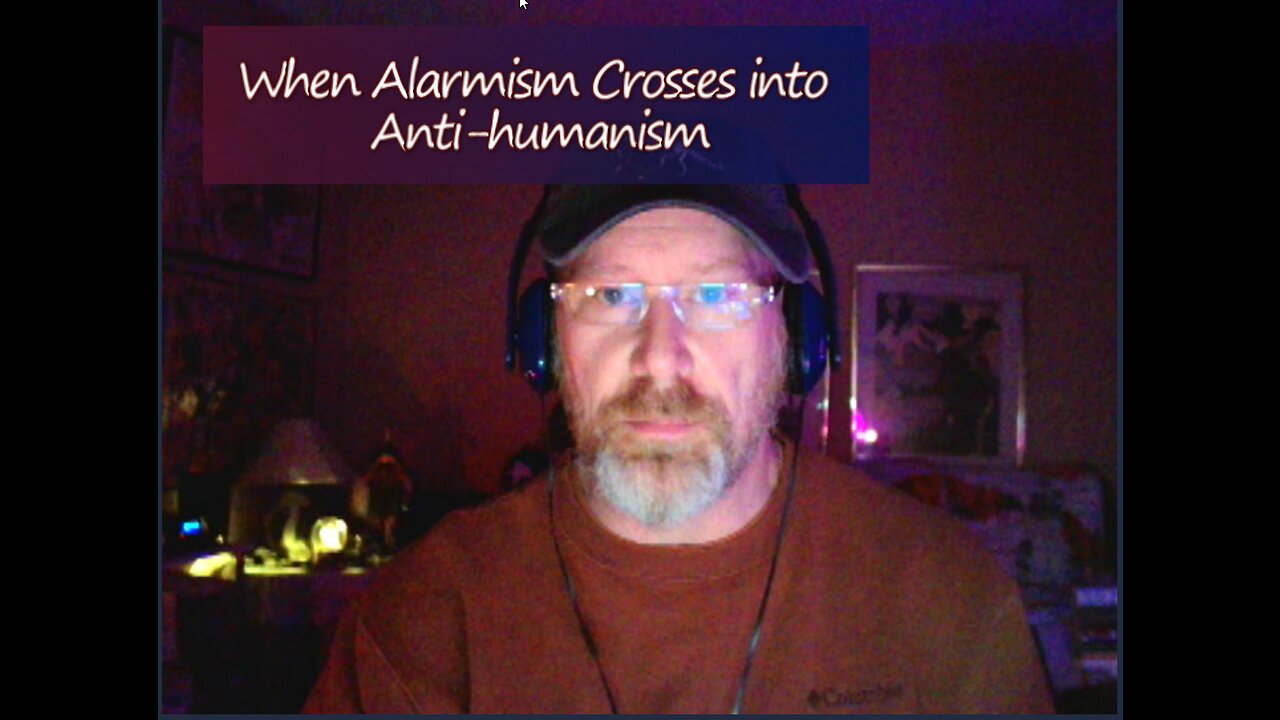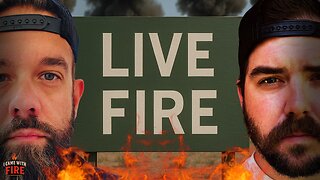Premium Only Content

When Alarmism Crosses into Anti-humanism.
A deeply immoral, anti-human, point of view...
Climate alarmism is bad enough, but some thought leaders who drive it, who are its philosophical torchbearers, have an even more troubling view of humanity that far exceeds the usual misanthropy you might expect from its proponents. This quote comes from a review of: The End of Nature, by Bill McKibben, published in the Los Angeles Times. Written by David M. Graber in 1989 It reflects a deeply immoral philosophy:
"Human happiness, and certainly human fecundity, are not as important as a wild and healthy planet. I know social scientists who remind me that people are part of nature, but it isn’t true. Somewhere along the line--at about a billion years ago, maybe half that--we quit the contract and became a cancer. We have become a plague upon ourselves and upon the Earth.” – David M. Graber , Mother Nature as a Hothouse Flower : THE END OF NATURE by Bill McKibben
This again, is a deeply immoral outlook on life. Sadly, it is shared by a great many of people. Morality in general terms, can be thought to be comprised of two twin values or “pillars". The first, how much an action serves life. And second, how much an action allows for free-will among humans. Both values are equal and mutually reinforcing. The world view expressed in the quote is an affront to the first pillar of morality, the life pillar. The casual disregard for billions of human lives when he writes: “We are not interested in the utility of a particular species, or free-flowing river, or ecosystem, to mankind. They have intrinsic value, more value--to me--than another human body, or a billion of them,” is shocking. Even the most generous interpretation of this quote, that the billion human lives that have less value than the ecological purity of a piece of geography are notional lives, not yet established, would still be odious. He calls himself a “biocentrist.” He would claim to be deeply invested in the life pillar; except he values no human life if it is advanced past the point of aboriginal. He speaks of valuing wilderness “for its own sake, not for what value it confers upon mankind.” He forgets or is oblivious to the fact that even in appreciating nature for its own sake, suggests a value it confers on mankind. The ability to appreciate something for its own sake, or for any sake, is an ability possessed by mankind alone. (So far as we know). One might put this riddle to him and McKibben: If a tree falls in the woods, and there are no living beings with sentience enough to value it for its own sake, does it have any true value?
-
 13:44
13:44
JP Mac's Dystopic Journal
1 month agoDystopic Journal: Anti-democracy
101 -
 3:47:10
3:47:10
SynthTrax & DJ Cheezus Livestreams
1 day agoFriday Night Synthwave 80s 90s Electronica and more DJ MIX Livestream Michael Jackson / AI Art Compilation Edition
46K -
 1:03:57
1:03:57
Sarah Westall
7 hours agoMara Lago Accord Joins the Fed, Fed Waves the White Flag & more w/ Andy Schectman
30K -
 2:44:12
2:44:12
I_Came_With_Fire_Podcast
1 day ago*BREAKING* Special Guest Katarina Szulc
38.3K6 -
 3:22:20
3:22:20
megimu32
7 hours agoOFF THE SUBJECT: FAFO Friday! Bodycams & Mario Kart Mayhem!
25.7K4 -
 55:36
55:36
Flyover Conservatives
1 day ago4 Strategies to Create Opportunity from Nothing - Clay Clark | FOC Show
30.1K -
 1:49
1:49
Gaming on Rumble
12 hours agoWhat is the Rumble Creator Program!?!? (Active Premium Creators) | Lvl UP
29K2 -
 5:56:26
5:56:26
Midnight In The Mountains
9 hours agoGaming w/ PER·SE·VER·ANCE | Midnights Play Fortnite | Split Screen Action!
19.4K2 -
 3:56:17
3:56:17
Nerdrotic
11 hours ago $14.82 earnedLet's TACO-bout Take Us North, Hollywood COPE! Cracker Barrel CRACKED! | Friday Night Tights 369
96.4K9 -
 1:16:30
1:16:30
RiftTV
9 hours agoHow Blue Light is Turning You Gay | The Rift | Guest: Jack Kruse
33.9K12